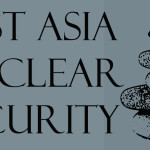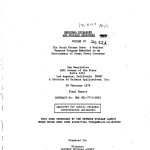Japan and the United States are reported to have agreed to change the way American soldiers will be re-distributed throughout the region – a seeming breakthrough to the long-stalled relocation process…If the reports are true, 4,700 marines will be transferred to Guam regardless of what happens to the Futenma airbase while the remaining 3,300 will be transferred elsewhere around the region.
Radio interview with Nautilus Associate, Richard Tanter. Click here for audio.



